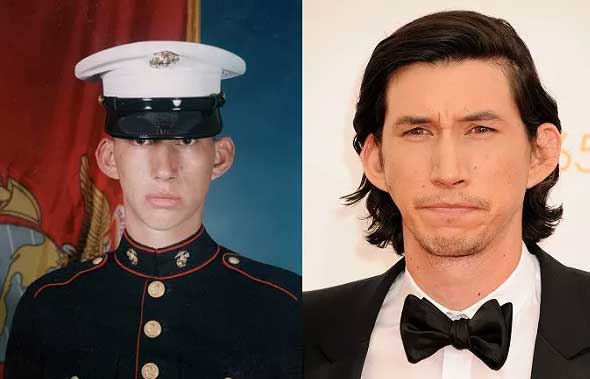
Many actors served their country in the army. Some actors were serious, while others were more adventurous. Some of the more well-known names in the entertainment industry also served in the military. Some of these include Mel Brooks and Andy Rooney, David Niven and Randy Couture. Here's a list of actors who served their country in the military.
James Stewart
James Stewart served in military service from 1942 to 1945. The Operations Officer of the 703rd Bombardment Group's 445th Bombardment Group in England was his military service. He felt that combat duty was impossible. Stewart, in his despair, wrote to Lt. Col. Walter E. Arnold Jr., his commanding officer. Arnold understood Stewart's situation and recommended Stewart to the commander for the 445th Bombardment Group. The B-24 Liberator group, which just finished initial training and was now preparing to deploy in Europe, was the subject of this letter.
Andy Rooney
Andy Rooney served in the military as a war correspondent during World War II. He was assigned in England to the Army Air Corps and flew several times in American bombers. After D-Day, he was transferred to the ground warfare and assigned to the China-Burma-India theatre. Rooney wrote many Stars and Stripes stories while serving in the army.

Randy Couture
Mixed martial artist and actor Randy Couture is a military veteran. He joined the Army in 1982 and served as a Sergeant in the 101st Airborne. Couture, while serving in the Army, was keen to wrestle and applied for freestyle wrestling team tryouts. Couture was not selected for the team and instead applied for tryouts in Greco-Roman wrestling.
Art Carney
Art Carney was a slave born in Norfolk, Virginia in 1840. He was freed and eventually moved to Massachusetts. As a young man, he showed great talent for mimicking the voices of famous people. Before joining the Army in World War II, he worked many radio jobs. His role as Philly on Joe and Ethel Turp was a precursor to his later role in "Gangbusters" as Ed Norton.
Bob Crane
Bob Crane was a veteran of the military before he became a well-known actor. He enlisted in the Army Air Corps at the age of 18 and served for three years. After World War II, he was sent to the Army of Occupation in Italy. He was a B-29 Superfortress tail gunner while he was there. His mission was to send him to the South Pacific, but he was not sent before the war ended.
Robert Duvall
Robert Duvall enlisted in the Army from 1953 to 1955. He was a Private First Class in the Army, stationed Georgia. He enrolled in theatre school and participated in amateur productions while he was serving. During his time in the Army, he acted in a play called "Room Service."

Don Rickles
Don Rickles was born and raised in New York. He served in the Navy in World War II. He was discharged honorably in 1946. During his military service, he was stationed in the Philippines. He returned to the United States and pursued an acting career. He started performing impressions at bingo parlors and church functions as a stand-up comedian. Later, he moved from Los Angeles to become a regular at the Slate Brothers Club.
FAQ
How long does it typically take to produce a commercial
It depends on the size and complexity of the project. One person might be required to film a small project, while a larger project could require several hundred people.
A 30-second spot generally takes between 2-5 business days to complete.
Does TV affect sales?
TV has a positive effect on sales as it allows consumers to see which products are available.
Customers often compare prices before they buy something. They often think "I wonder if it's possible to afford that?" when they see an advertisement for a product.
Are television commercials targeted for?
You can target ads by knowing what people are looking at it right now.
Also, you can advertise during football games if your goal is to reach football-loving people. You can reach people who watch movies on Friday night by advertising during movie times.
You should advertise on prime-time shows if you want people to see your ads while they are eating dinner.
It is important to know what people do when they view your ads. This means that you have to be able to access data about the programs they are watching.
New technologies like streaming video or DVRs make data easier to access.
Keep in mind that each person is different. It's impossible to predict which program someone will be watching next.
It's crucial to test different kinds of ads. Real-world feedback will help you determine which ads work best.
What does it cost to produce a commercial?
Production costs money for a commercial. The amount depends on the length of the spot, the number of actors involved, the location where the shoot takes place, etc.
A 30 second commercial will typically cost between $20,000-40,000.
Statistics
- This includes 97 percent of Gen X, and 95 percent of Millennials. (marketingevolution.com)
- In fact, 76% of people completely skip the commercials while watching their programs. (qualitylogoproducts.com)
- To get estimated costs for airing a 60-second TV commercial in different regional markets, check out the following figures in this TV ad pricing chart from the media experts at Casual Precision. (fitsmallbusiness.com)
- Not to mention, sales rose an incredible 11% following the launch of this commercial. (qualitylogoproducts.com)
- Radio is extremely accessible – 95 percent of cars have radios, and 99 percent of homes have radios. (marketingevolution.com)
External Links
How To
How do I buy TV time?
First, make sure you have an idea of a show that people would enjoy watching. If not, then you don't need to spend money on buying airtime. You can always pitch ideas for local stations. They are often looking for original content.
If you find a station that is willing to air your request, be sure to research what they have done in the past. Look into the past to see if you can learn anything from them.
The next step is to make a script. Make sure it's well-written and structured. It doesn't matter how much time it takes to write, so long as the work is completed in a reasonable amount.
Finalize the script and send it to your station. Tell them who you are, why you think this show would be successful, and what kind of format you'd like to go for.
You'll probably also need to provide references (like other shows they've produced) and examples of previous scripts you've written.
Once you get a response, you'll know if you've got a shot at getting the show aired. To get a response, contact someone who is directly involved in the show.